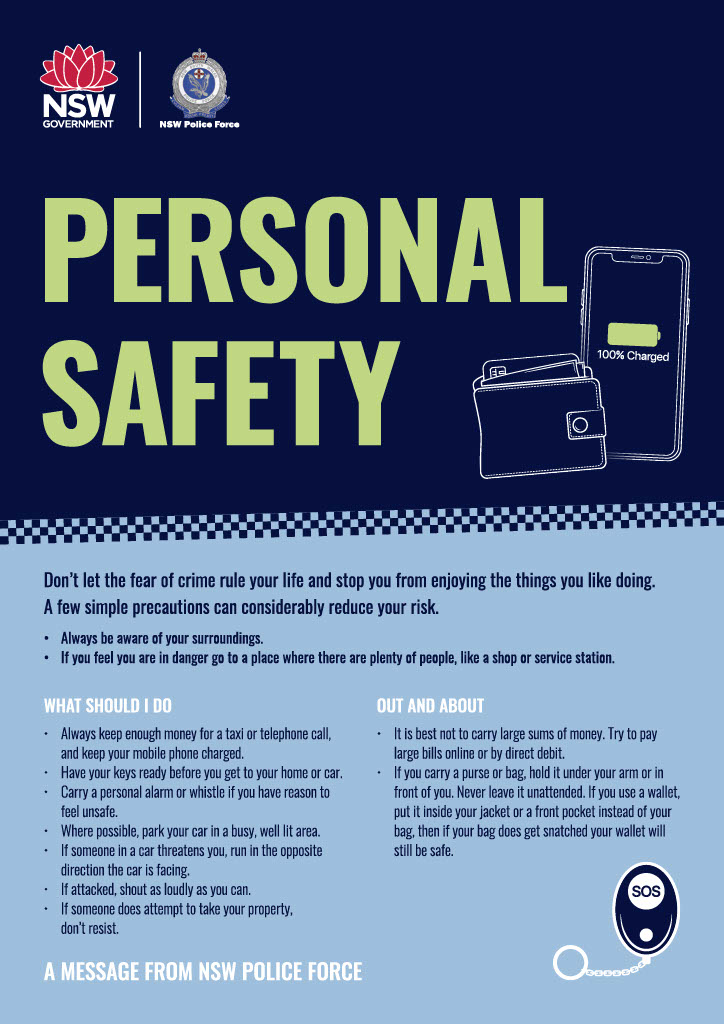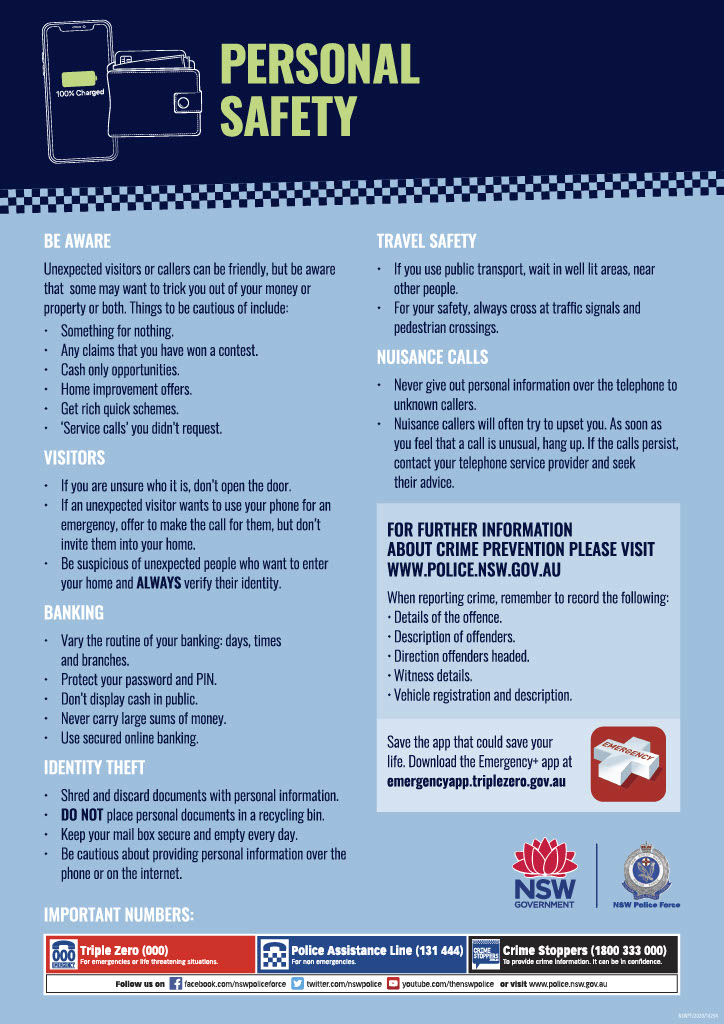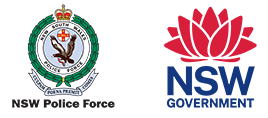- Always keep enough money for a taxi or telephone call
- Have your keys ready before you get to your home or car
- Carry a personal alarm or whistle if you have reason to feel unsafe
- Where possible, park your car in a busy, well lit area
- If someone in a car threatens you, run in the opposite direction the car is facing
- If attacked, shout as loudly as you can.
- description of offenders
- direction offenders headed
- time
- details of offence
- car registration
- witness details
- Never give out personal information over the telephone to unknown callers
- Nuisance callers will often try to upset you. As soon as you feel that a call is unusual, hang up. If the calls persist, contact your telephone service provider and seek their advice.
- Don't let the fear of crime rule your life and stop you from enjoying the things you like doing. A few simple precautions can considerably reduce your risk.
- It is best not to carry large sums of money. Try to pay large bills by cheque.
- If you carry a purse or bag, hold it under your arm or in front of you. Never leave it unattended. If you use a wallet, put it inside your jacket or a front pocket instead of your bag, then if your bag does get snatched your wallet will still be safe. Try not to carry more money than you need.
Check the used car you're buying isn't stolen and has no unpaid monies owing on it. Call the Register of Encumbered Vehicles (REVS) on 13 32 20
- If you believe you are in danger: Don't open the door to anyone you don't know and trust.
- If someone is at the door and you are alone and feel a bit frightened, pretend there is someone else in the house. If someone wants to use your telephone for an emergency, don't feel rude not to let them in. Offer to make the call for them - if they are a genuine caller they will not mind.
- Be suspicious of people requesting entry to your home to check appliances or equipment. Ask to see their identity card and take time to look at it carefully before letting them in. If you are still unsure, ring their company to check. If in doubt, keep them out.
- Make sure your home number can be clearly seen from the street. This not only helps in emergencies, it makes it easier for visitors to find your home.
- Be discreet if you live alone. It is better not to indicate on house directories or name plates that you are a Ms, Miss, Mrs or Mr. Just use your surname.
- Make arrangements to have regular contact with someone you trust. Try setting up a code like three rings on a telephone each morning or simply lifting your blind up at the start of each day so they know you're OK.
Always be aware of your surroundings. If you feel you are in danger go to a place where there are plenty of people, like a shop or service station.
What Should I Do?
If we stop one person from committing a crime, there is a good chance we will prevent them carrying out further crimes. We need you to provide us with any information you have on crime, even if you can't identify the offender.
Information retrieved may assist investigators to apprehend offenders and develop police and community crime prevention strategies.
Please report all information including:
Nuisance Calls
Out and About
Visitors
Don't be afraid you will make things worse by involving the police. We can help you and protect you.
Call 000 in an emergency.


